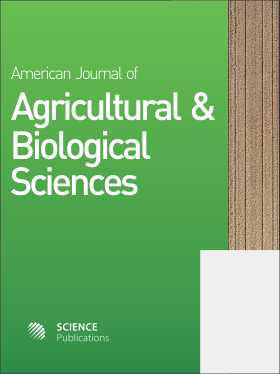Sugarcane Response to Water-Deficit Stress during Early Growth on Organic and Sand Soils
- 1 United States Department of Agriculture (USDA), The Agricultural Research Service, Sugarcane Field Station, 12990 US Highway 441 N, Canal Point, FL, 33438, United States
Abstract
Problem statement: Approximately 20% of sugarcane (Saccharum spp.) is grown on sand soils in south Florida, USA. Sugarcane yields in the region linearly increased in last 33 years on organic (muck) soils, but not on sand soils. Water deficit during the formative growth phase on sand soils probably limits sugarcane yields. Approach: A greenhouse study was conducted in 2009 and 2010 to evaluate the physiological and growth responses of sugarcane to water-deficit stress during formative growth. Treatments included organic (muck) and sand soils and two water regimes Well Watered (WW) and Water-Deficit Stress (WS). Sugarcane cultivar CP 80-1743 was planted in pots and fertilized with N, P and K based on soil analyses. All pots were well watered until 58 days after planting, when water was withheld from the WS pots. During the WS treatment, plant growth rate, leaf Relative Water Content (RWC), proline content and photosynthesis components were measured. Final tillers, Green Leaf Area (GLA) and shoot biomass were determined 27 (in 2009) or 22 (in 2010) days after initiating the WS treatment. Results: Stress symptoms of sugarcane plants appeared 7-10 days earlier on sand soil than on muck soil. Water stress reduced stomatal conductance (gs), Photosystem II Photochemical Efficiency (ΦPSII), leaf Photosynthesis rate (Pn), the number of tillers and GLA, resulting in reduced shoot biomass, especially on sand soil. Neither leaf RWC nor proline content was a sensitive WS indicator. Conclusion: Nondestructive measurements of physiological traits of gs, ΦPSII and Pn during the formative stage may be useful for early detection of water stress in sugarcane.
DOI: https://doi.org/10.3844/ajabssp.2010.403.414

- 5,112 Views
- 5,238 Downloads
- 73 Citations
Download
Keywords
- Formative growth phase
- photosynthesis components
- physiological traits
- soil properties
- sugarcane
